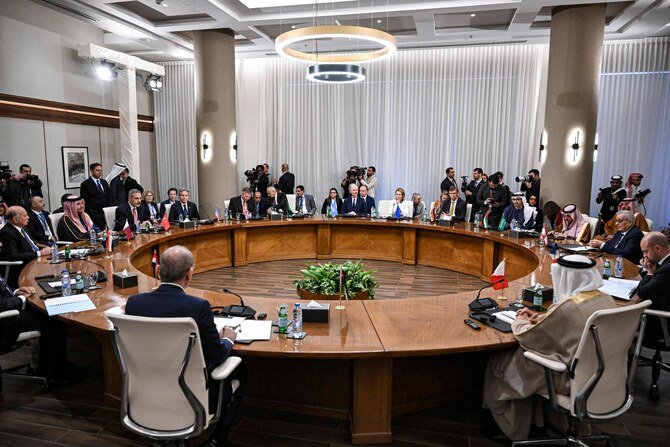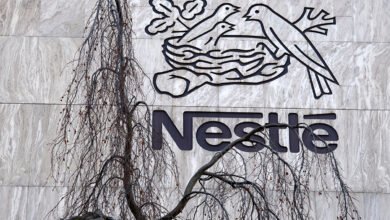
Inclusive Syrian State: Saudi FM and Global Diplomats Unite
Saudi Arabia’s Foreign Minister joined Arab and US diplomats to support a detailed change in Syria’s governance structure. This high-level diplomatic move is a vital step toward building a new, inclusive Syrian state that represents its entire population.
The diplomats share a common vision for Syria’s future. Their initiative focuses on constitutional reforms, protecting minority rights, and security arrangements that are the foundations of the proposed transition plan. Saudi Arabia leads this diplomatic effort to bring stability and reconstruction to Syria. Regional powers have pledged economic and political backing to support these goals.
Saudi Arabia’s Strategic Vision
Saudi Arabia’s vision for Syria marks a major change in regional diplomacy that emphasizes inclusive governance and economic revival. The Kingdom combines diplomatic initiatives, economic cooperation, and security arrangements to make Syria’s reintegration into the Arab fold easier.
Key Diplomatic Objectives
Saudi Arabia’s diplomatic framework puts a Syrian-led transitional political process first to address the Syrian people’s fundamental challenges. This vision focuses on restoring national institutions while protecting Syria’s sovereignty and territorial integrity. The Kingdom shows its steadfast dedication through active participation in Arab League initiatives and calls for detailed support for Syrian people who should determine their future.
Economic Investment Plans
Saudi Arabia has started substantial economic cooperation with Syria to mark a new chapter in bilateral relations. The Kingdom’s economic vision has:
- Reopened commercial and investment activities between both nations
- Established economic forums to improve trade balance
- Given investors access to opportunities in both countries
Saudi Arabia’s Chamber Federation takes concrete steps with Syrian counterparts to exchange business delegations and explore investment possibilities.
Regional Security Priorities
The Kingdom’s security vision rests on three core elements: curbing terrorism, protecting Syria’s territory, and ensuring regional stability. Saudi Arabia sees Syria’s security as crucial to regional stability and advocates a unified approach to counter extremism and terrorism. The strategy supports Syria’s reconstruction while protecting its independence and sovereignty, showing a broader commitment to regional security architecture.
Coalition Building Efforts
Diplomatic efforts on multiple fronts have helped the coalition-building process pick up speed. Eight Arab League countries’ top diplomats met in Jordan’s Red Sea port of Aqaba to create a unified approach toward Syria’s political transition.
Arab League Coordination
The Arab Ministerial Contact Committee has become a vital platform for regional coordination. Jordan, Saudi Arabia, Iraq, Lebanon, Egypt, and the Arab League Secretary-General’s representatives make up this committee. The committee’s key priorities include:
- Supporting a UN-led political transition process
- Creating conditions for refugee return
- Ensuring protection of minority rights
- Maintaining Syria’s territorial integrity
US-Saudi Partnership
The United States and Saudi Arabia’s 80-year-old strategic partnership plays a key role in shaping Syria’s transition framework. Their collaborative effort focuses on stronger security ties through defense sales, joint military exercises, and fighting the spread of unmanned aerial systems. The partnership has shown clear results through bilateral frameworks and participation in vital regional initiatives.
Turkish-Arab Alignment
Turkish and Arab nations now share common goals for Syria’s future governance. Turkish Foreign Minister Hakan Fidan stressed the need to preserve and reform existing Syrian institutions during the Aqaba meetings. Joint diplomatic initiatives have strengthened the connection between Turkish and Arab positions, especially when dealing with security concerns and creating frameworks for inclusive governance.
The coalition’s work has produced a detailed joint communique that outlines principles for Syria’s future government. The document emphasizes minority rights protection and counter-terrorism measures. This unified approach marks a major step toward an inclusive transition process that tackles Syria’s complex political transformation challenges.
Transition Framework
UN Security Council Resolution 2254 is the life-blood of Syria’s complete transition framework. It provides clear guidelines for political reform and inclusive governance. This framework marks a fundamental change toward creating credible, inclusive, and non-sectarian governance that meets international standards.
Inclusive Governance Model
The transition framework focuses on building governance that represents every sector of Syrian society. Women, people with disabilities, minority groups, civil society organizations, displaced communities, and various political actors must actively participate. Systems exist to ensure transparent consultations and equal representation, so every group can contribute to Syria’s recovery and rebuilding efforts.
Minority Rights Protection
Strong mechanisms to protect minority rights are the life-blood of the transition process. The framework specifically protects:
- Women and children
- People with disabilities
- Older people
- Religious and ethnic minorities
- Displaced communities
Constitutional Reform Process
UN supervision guides the constitutional reform through the Syrian Constitutional Committee. The committee has 150 members with equal representation from government, opposition, and civil society. A small body of 45 members prepares and drafts constitutional proposals. This process follows international standards of transparency and accountability. All Syrians, including those in the diaspora, can help shape their country’s future.
The framework creates conditions that guarantee voluntary, safe, and dignified returns for displaced Syrians. It ensures accountability for past violations through international mechanisms. This complete approach prevents state collapse while supporting reconstruction efforts that benefit everyone in Syrian society.
Implementation Roadmap
Syria’s transition roadmap covers complete security measures, political goals, and international oversight systems. This framework lays out specific steps to build stable governance and ensures accountability and protection for all Syrian citizens.
Security Arrangements
The security priorities right now focus on keeping evidence of past violations safe and protecting vulnerable populations. The core security measures include:
- Protecting and preserving evidence from mass grave sites and government archives
- Deploying protection units for religious and ethnic minority groups
- Building safeguards for weapons storage facilities
- Making sure humanitarian aid reaches rural and remote areas
Political Milestones
The transitional government suspended the constitution and parliament for three months to make reforms easier. A judicial and human rights committee will look into and suggest constitutional amendments that focus on building the rule of law. The plan has mechanisms for community reconciliation and brings complete reforms to security and judicial systems.
International Monitoring
The G7 nations support a transition process that leads to credible, inclusive governance. International monitoring systems include:
Independent monitors like the International, Impartial and Independent Mechanism for Syria (IIIM) and the UN Commission of Inquiry now watch over the process. These groups oversee security arrangements and political reforms to ensure they meet international standards. The UN and Arab League support the political process under Security Council Resolution 2254. They provide vital oversight of the transition’s progress and make sure it follows democratic governance measures.
Saudi Arabia’s diplomatic leadership and its strong regional partnerships are the foundations of Syria’s political shift. Their detailed plan tackles everything in governance reform, security arrangements, and minority rights protection. Syria’s territorial integrity remains intact. The Arab League works closely with US-Saudi partnerships and Turkish-Arab cooperation to provide the diplomatic backing needed for this transition plan.
The new constitutional reforms and inclusive governance systems will revolutionize Syria’s political scene. International monitoring bodies and G7 support back these changes to build lasting stability. The security measures protect at-risk populations and ensure accountability through international systems.
Regional partners see this transition framework as their most important step toward Middle East stability. Their united strategy builds on UN Security Council Resolution 2254 and shows exceptional teamwork in tackling complex regional issues. A successful Syrian transition could become a blueprint to resolve other conflicts and usher in a new age of diplomatic solutions across the Middle East.






